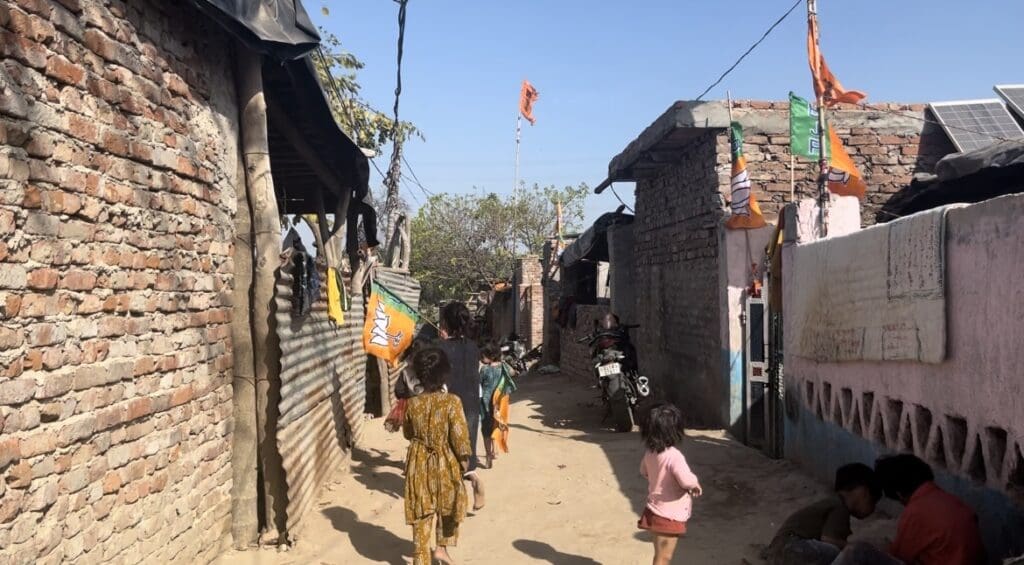Shriya Sharma, Saqiba Khan
“This is the flag of my nation,” screams a young girl while running in the streets of a refugee camp for Pakistani Hindus in New Delhi. She is referring to the saffron flag of Narendra Modi’s Bharatiya Janta Party.
For people in the settlement, Modi is a saviour for the implementation of the Citizenship Amendment Act (CAA).
On 11 March, the Union Home Ministry notified the Citizenship Amendment Rules, 2024, enabling the implementation of the CAA, four years after the legislation was passed in 2019. The Act will provide Indian Citizenship to the non-Muslim refugees (‘persecuted religious minorities’) from the neighboring nations of Pakistan, Bangladesh and Afghanistan. The move sparked sporadic protests with critics, including Muslims groups and opposition parties, saying the law discriminates against Muslims and undermines India’s secular constitution.
Consequently, approximately 170 Pakistani Hindu families who sought refuge in Delhi in 2012, and settled near Gurudwara in Majnu ka Tila, North Delhi, have now become direct beneficiaries of the CAA.
These Pakistani Hindus continue to face problems at ground level. However, they vehemently support the ideology of “Hindu Rashtra” propagated by the Hindu nationalist politics prevalent in the nation.
A 50-year-old woman at the Pakistani Hindu refugee camp who chooses to remain anonymous says, “We get to live in the Hindu Rashtra that Modiji has made for us. Water, food, and electricity problems would persist even after getting citizenship, but what matters to us is living in our Hindu Rashtra.”
A mother of two, who came to India from Sindh when she was 15 and who wishes to remain anonymous says, “If we get citizenship, our only hope is that our children would at least get an education and we would get to live in the birthplace of our Hindu gods and feel secure in our Hindu Rashtra.”
“We have come to India, with a lot of hope and admiration towards the government in power and we shall keep that hope till our last breath,” says 58 years old Reena, who came here in 2012 with his Husband, leaving her daughter (who was a few months old back then) in Pakistan.
“We might die as a refugee, but we would be happy to die in a land (referring to India) that we can call our ‘home’,” she added. Despite not yet receiving citizenship and voter IDs, Pakistani Hindus appear to have already made their decision for the elections.
“Many of our family members still live on the other side of the border, who also wish to migrate to this side”, says Reena’s elder son, Dharm, 24, a shop owner in the vicinity of the campsite.
With endless hope of a better future, away from their place of origin and their extended families, these Pakistani Hindus, awaiting Indian Citizenship remain unaware of the ambitions and objectives that the government in power wishes to fulfill through them.

While they have completely accepted India as their land, the government continues to look at them as vulnerable citizens, who can serve their purpose this election season.
The pain and perpetual discontent in the hearts of these refugees goes beyond the politics of nations. This manipulation suggests that the rights, welfare, and actual needs of refugees may be disregarded in favor of using their plight as pawns to win votes.
The CAA was passed in December 2019 and subsequently got the president’s assent but there were protests in several parts of the country against it.



